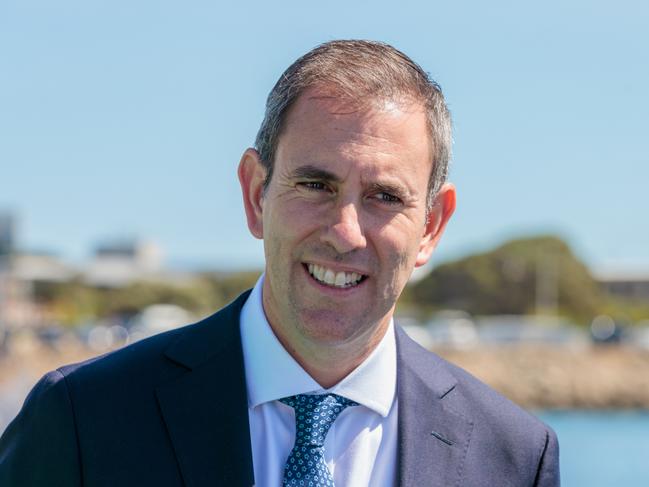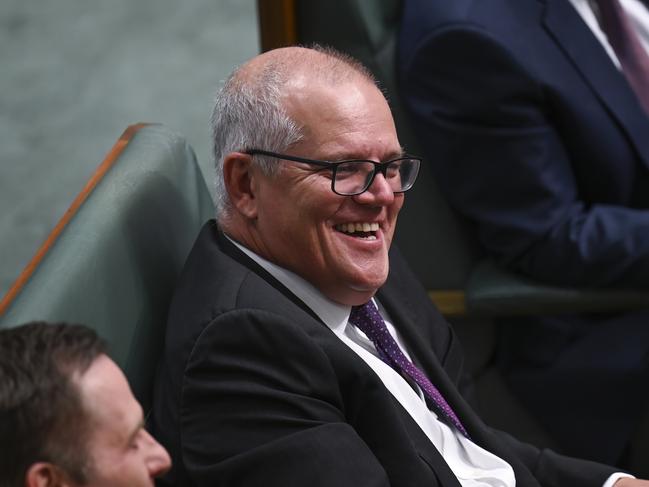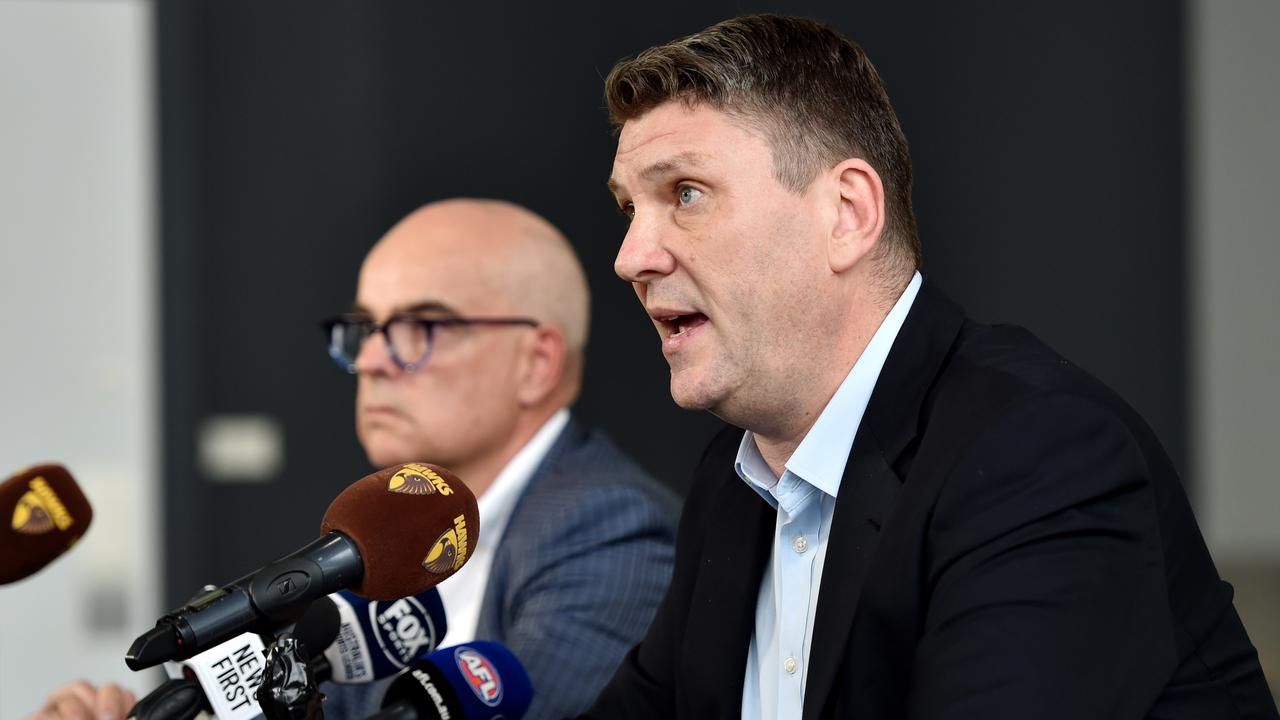Treasurer vows no changes to controversial Morrison-era GST deal
The Treasurer has promised not to change a controversial deal that will cost taxpayers billions, saying it is a “thank you” to people in one state.
NewsWire
Don't miss out on the headlines from NewsWire. Followed categories will be added to My News.
Jim Chalmers has promised not to reverse a Morrison-era twist on the Goods and Services Tax despite taxpayers being slugged $10bn over the next two years to top up payments to Western Australia.
A Commonwealth Grants Commission report revealed the estimated cost of the former Coalition government’s GST distribution deal will be $4.4bn this financial year and rise to $5.6bn in the financial year 2024.
Scott Morrison as treasurer cut a deal with WA before the 2019 election to introduce a new “floor” that means every state must receive 70 cents for every dollar of GST they raise in 2022-23 and 75 cents a dollar in 2024-25.
Speaking to journalists in Perth after the CGC report was released on Tuesday, the Treasurer said the cost was a “thank you” to the people of WA and Labor had no plans to change the arrangement.

“This is a deal that we are committed to, this is a deal that we are proud of, this is a deal that ensures that we recognise that the WA economy often keeps the wheels of the national economy turning,” Dr Chalmers said.
“I have said to Premier McGowan and Treasurer McGowan, I’ve said publicly and privately here in WA, we don’t intend to change that deal.”
Premier Mark McGowan — who is also the WA Treasurer — has railed against any suggestion of changing the arrangement despite criticism from other states.
Dr Chalmers on Tuesday dismissed as “absolute rubbish” claims from WA-based Liberal senator Michaelia Cash that Labor was going to tinker with the GST floor.
But he wouldn’t be drawn on whether the “no worse off” guarantee would be allowed to expire in the 2026 financial year, saying that a review into the arrangement was years away.
The Morrison government introduced the safety net when it implemented the new GST floor to compensate states with funding from outside of the GST pool for any losses they incurred during the transition to the new system.
The floor was introduced to try to stop WA from missing out on GST because of soaring mining royalties that resulted in its share falling to 30 cents in the dollar, and to tie it to a benchmark of whichever one of the less volatile economies of NSW or Victoria was fiscally stronger.

The arrangement has sparked controversy especially given WA enjoyed a financial boom during the Covid-19 pandemic and is in a strong economic position, with critics arguing it isn’t equitable for the state to be receiving more GST than it needs.
However, tax expert Robert Breunig warned Labor wouldn’t want to change the policy because it could cost them votes in WA, which he said was the same reason the Liberals introduced the policy in the first place.
“I think it really demonstrates a wider point about governments,” the director of the Tax and Transfer Policy Institute at The Australian National University said.
“If the government starts putting in place programs that are that are not a good idea just to win votes, these programs become almost impossible to undo in the future. Our whole system is full of stuff like that.”
Professor Breunig said the commonwealth should revert to the previous “apolitical” system of GST distribution.
“We looked at how much each state could afford terms of how much revenue was raised,” he said.
“We looked at the costs of each state in terms of how difficult it was to deliver services that we had a formula that fairly apportion money across the country.”
The CGC report on Tuesday said every state but WA was estimated to receive less GST this financial year than they would have under the old system.
But all states and territories are expected to receive more GST in this financial year than the last, taking into account no worse off payments and that the GST pool is expected to grow by more than $3bn to an estimated $86bn.
The independent commission aims to distribute the GST pool equitably between the states and territories each year by taking into account the ability of each state and territory to raise revenue.
Originally published as Treasurer vows no changes to controversial Morrison-era GST deal


